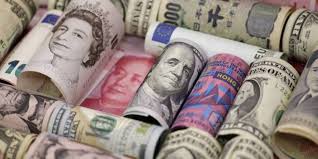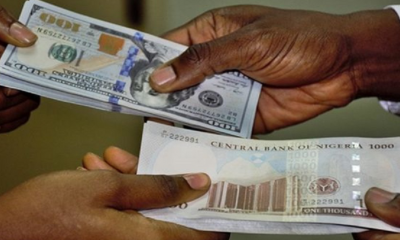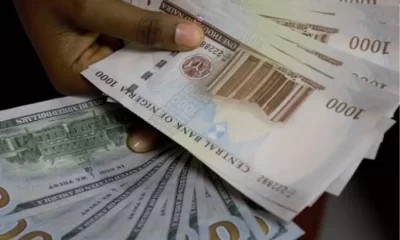By CHIOMA OBINAGWAM
THE recent announcement of a new Foreign Exchange(Forex) policy by the Central Bank of Nigeria(CBN), Nigeria’s apex bank, has stirred up reactions among pundits, with concerns around the stability of the exchange rate in naira/dollar terms.
Johnson Chukwu, the Managing Director of Cowry Asset Management, an investment company, maintained that there will be an initial stability and recovery of the naira value as soon as the policy becomes effective.
Although he noted that the policy will bring about some stability in the short-term, achieving that in the medium to long-term will be dependent on a number of factors, which includes addressing the growing insecurity issue in the country, particularly in the Niger-Delta.
“On the naira value, initially by next week when the policy will be active, there will be recovery in the exchange rate but it will be temporary. Don’t forget that about $4 to $5 billion Forex demand is pending at the CBN official window,” Chukwu disclosed.
The Cowry Asset Management boss also noted that creating an economic policy that is market oriented is critical in determining the sustainability of stability in the Forex market.
The pundit pointed that long-term stability of Forex will be derived if the Federal Government concessions critical infrastructures like the rail-lines, highways etc to Foreign Portfolio Investors (FPIs).
ALSO SEE: New FX guidelines may ease pressure on naira
The sustainability of the stability in the Forex market will be dependent on how quickly Nigeria is able to resolve the problems in the Niger-Delta; Nigeria is able to show that its economic policies are now market-oriented as well as the concessioning of some critical infrastructure.”
In terms of its impact on the parallel market, Chukwu said that the policy will bring some level of convergence in the exchange rate at the interbank market and at the parallel market, which will be sustainable as long as there is no limit to spread.
He argued that the restrictions of Forex placed on the 41 items would continue to stir up competition between the interbank and the parallel markets as importers of those items would always fall back on the parallel market for their Forex needs.
Chukwu also said that the introduction of the new Forex would impact positively on the capital market investors have had to bear the brunt of the economy on their investments.
He said: “The new Forex policy will have positive impacts on the capital market. It is no longer news that the Net Asset Value of most stocks listed on the Nigerian Stock Exchange (NSE) are low, where investors have been beaten by the current economic situation.”

 Entertainment5 days ago
Entertainment5 days ago
 Health1 week ago
Health1 week ago
 Health4 days ago
Health4 days ago
 Football1 week ago
Football1 week ago
 Football1 week ago
Football1 week ago
 Crime4 days ago
Crime4 days ago
 Crime1 week ago
Crime1 week ago
 Education6 days ago
Education6 days ago













